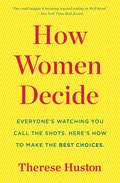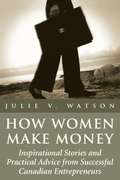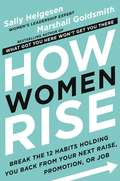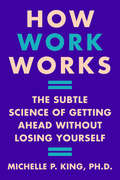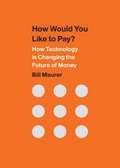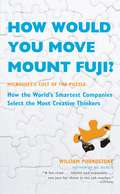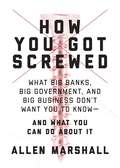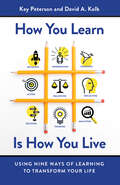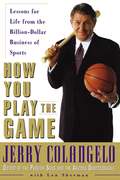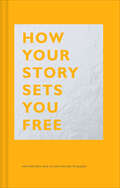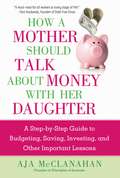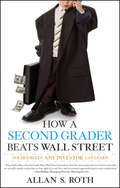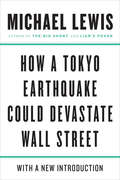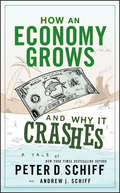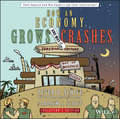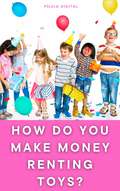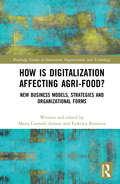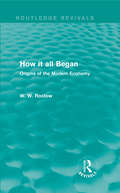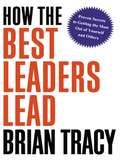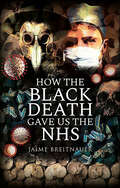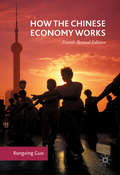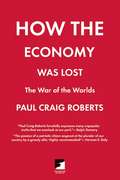- Table View
- List View
How Will the Patient Protection and Affordable Care Act Affect Liability Insurance Costs?
by Paul Heaton David I. Auerbach Ian BrantleyThe Patient Protection and Affordable Care Act (ACA) will greatly expand private coverage and Medicaid while making major changes to payment rates and the health care delivery system. These changes will affect traditional health insurers, individuals, and government payers. In addition, a considerable amount of health care is paid for directly by or is indirectly paid for via legal settlements after the care occurs, by liability insurers. This report identifies potential mechanisms through which the ACA might affect claim costs for several major types of liability coverage, especially auto insurance, workers' compensation coverage, and medical malpractice. The authors discuss the conceptual basis for each mechanism, review existing scholarly evidence regarding its importance, and, where possible, develop rough estimates of the size and direction of expected impacts as of 2016. They examine how each mechanism might operate across different liability lines and discuss how variation across states in legal rules, demographics, and other factors might moderate each mechanism's operation. Overall, expected short-term effects of the ACA appear likely to be small relative to aggregate liability insurer payouts in the markets in question. However, under reasonable assumptions, some mechanisms can generate potential cost changes as high as 5 percent or more in particular states and insurance lines. The authors also discuss longer-run changes that could be fostered by the ACA that might exert more significant effects on insurance claim costs, including shifts in tort law, changes in physician supply, new pricing approaches under the accountable care organization model, and changes in population health.
How Women Decide: What's True, What's Not, And Why It Matters
by Therese Huston&“An authoritative guide to help women navigate the workplace and their everyday life with greater success and impact&” (Forbes). So, you&’ve earned a seat at the table. What happens next? We all face hard decisions every day—and the choices we make, and how others perceive them, can be life changing. There are countless books on how to make those tough calls, but How Women Decide is the first to examine a much overlooked truth: Men and women reach verdicts differently, and often in surprising ways. Stress? It makes women more focused. Confidence? Caution can lead to stronger resolutions. And despite popular misconceptions, women are just as decisive as men—though they may pay for it. Pulling from the latest science on decision-making, as well as lively stories of real women and their experiences, cognitive scientist Therese Huston teaches us how we can better shape our habits, perceptions, and strategies, not just to make the most of our own opportunities, but to reform the culture and bring out the best results—regardless of who&’s behind them.
How Women Make Money: Inspirational Stories and Practical Advice from Canadian Women
by Julie V. WatsonHow Women Make Money is an inspiring collection of profiles, anecdotes, and practical advice and guides that will help women take control of their lives and attain their financial goals. Whether you are starting a new business, growing an established one, supplementing a pension, working for "extras" for the family, or striving to fulfill a lifelong dream, this book will nurture your entrepreneurial spirit and give you the tools you need to achieve success.
How Women Rise: Break the 12 Habits Holding You Back from Your Next Raise, Promotion, or Job
by Marshall Goldsmith Sally HelgesenReady to take the next step in your career . . . but not sure what's holding you back? Read on. Leadership expert Sally Helgesen and bestselling leadership coach Marshall Goldsmith have trained thousands of high achievers--men and women--to reach even greater heights. Again and again, they see that women face specific and different roadblocks from men as they advance in the workplace. In fact, the very habits that helped women early in their careers can hinder them as they move up. Simply put, what got you here won't get you there . . . and you might not even realize your blind spots until it's too late. Are you great with the details? To rise, you need to do less and delegate more. Are you a team player? To advance, you need to take credit as easily as you share it. Are you a star networker? Leaders know a network is no good unless you know how to use it. Sally and Marshall identify the 12 habits that hold women back as they seek to advance, showing them why what worked for them in the past might actually be sabotaging their future success. Building on Marshall's classic best seller What Got You Here Won't Get You There, their new book How Women Rise is essential reading for any woman who is ready to advance to the next level.
How Work Works: The Subtle Science of Getting Ahead Without Losing Yourself
by Michelle P. KingA unique and revelatory guide to understanding and navigating the unwritten rules of the workplace—the key to achieving success, finding meaning, and staying true to your authentic self in today’s business world—from the organizational expert and celebrated author of The Fix.In her two decades researching organizations, Michelle King has discovered that people who succeed possess a particularly unique skill: They know how workplaces work. More specifically, to get ahead, they do not rely on the often generic and outdated written formal rules that for a century have defined the workplace. Instead, they have learned to gauge how they should behave and perform by becoming aware of informal (and unspoken) rules that exist just below the surface, rather than “formal” organizational guidelines. In this one-of-a-kind guide, King offers her proprietary framework based on over ten years of research and hundreds of employees who reached leadership positions. By focusing on five key areas -- navigating informal networks; developing self-awareness and awareness of others; learning the skills you need to be adaptive to changing conditions; getting support for your next promotion; and finding meaning and fulfillment at work—King teaches every professional how to understand and make these systems work for them and achieve their career ambitions.The new world of work requires a new way of working. With more people vying for top positions, a volatile unpredictable global workplace, and an ever-evolving landscape, it is increasingly important for employees to understand how to negotiate the unspoken and intangible elements of workplace culture.. In How Work Works, King dispels old myths and provides keen observations about what it means to find belonging, build networks, manage the informal and ultimately thrive at work.
How Would You Like to Pay?: How Technology Is Changing the Future of Money
by Bill MaurerFrom Bitcoin to Apple Pay, big changes seem to be afoot in the world of money. Yet the use of coins and paper bills has persisted for 3,000 years. In How Would You Like to Pay?, leading anthropologist Bill Maurer narrates money's history, considers its role in everyday life, and discusses the implications of how new technologies are changing how we pay. These changes are especially important in the developing world, where people who lack access to banks are using cell phones in creative ways to send and save money. To truly understand money, Maurer explains, is to understand and appreciate the complex infrastructures and social relationships it relies on. Engaging and straightforward, How Would You Like to Pay? rethinks something so familiar and fundamental in new and exciting ways. Ultimately, considering how we would like to pay gives insights into determining how we would like to live.
How Would You Move Mount Fuji?: Microsoft's Cult of the Puzzle - How the World's Smartest Companies Select the Most Creative Thinkers
by William PoundstoneMicrosoft's notoriously grueling interview process has been emulated by companies everywhere that seek to separate the most creative thinkers from the merely brilliant. HOW WOULD YOU MOVE MOUNT FUJI? reveals more than 35 of these challenging riddles and puzzles and, for the first time, shows how answers can be found through creative and effective analytical thinking.
How You Got Screwed: What Big Banks, Big Government, and Big Business Don't Want You to Know—and What You Can Do About It
by Allen MarshallIf you’re like most people, you want nothing more than a fair shot in life: a chance to seek out opportunities, work hard, and make your own way in this world. But as author Allen Marshall explains in How You Got Screwed, the game has been rigged, making it almost impossible for you to win. How You Got Screwed explains exactly how the rules have been made to favor those in charge. Consider the financial system, which steals your earning power with money that doesn’t hold its value and lets banks break the law practically without consequence. Think about our politicians, who serve their donors and lobbyists, and a government more interested in serving itself than its people. And remember big business, which uses its money and political power to twist the rules in their favor, hurting you as a consumer, employee, and citizen.Yes, the cards are stacked against you. But that’s only if you play by their rules. It’s time to play your own game—and How You Got Screwed is your guide to making the system work for you.
How You Learn Is How You Live: Using Nine Ways of Learning to Transform Your Life
by David A. Kolb Kay PetersonWhat's Your Learning Style?Being a lifelong learner is one of the secrets to happiness, success, and personal fulfillment. But what's the best way to become one? Kay Peterson and David Kolb have the answer. They offer deep, research-based insights into the ideal process of learning and guide you in identifying your dominant style. You'll discover how knowing your learning style can help you with all kinds of everyday challenges, from remembering someone's name to adding a crucial professional skill to your repertoire. This book is a guide to awakening the power of learning that lies within each of us.
How You Play the Game: Lessons for Life from the Billion-Dollar Business of Sports
by Thomas NelsonA story of passion and commitment and faith?qualities that drove one working-class kid to not only build a sports empire, but also to change the way the entire sports industry has done business.This book is a tale of determination, faith, and, most assuredly, good timing and good luck. In truth, this isn&’t one story?but many. Sports executive and businessman Jerry Colangelo weaves together a lifetime of great moments in sports and tense times in business.In How You Play the Game, sports executive and businessman Jerry Colangelo details a lifetime of stories, including:How he emerged from the tough streets of Chicago Heights as a high school and college sports star How he helped create and build the Chicago Bulls?at a time when the NBA was a second-tier professional league, and two basketball teams had already failed in the Windy City How he moved to Arizona and started the Phoenix Suns, an organization that fought its way to become the ninth richest franchise in all of sports And how he then began baseball&’s newest team, the Arizona Diamondbacks.Peppered with stories about players and coaches, including Charles Barkley and Connie Hawkins, Red Holzman, and Buck Showalter, as well as owners, general managers, investors, reporters, and more, How You Play the Game is truly an insider&’s look at the sports world.
How You Spend Your Time: Where Does It Go?
by Richard LueckeTaking an introspective approach to time management can be quite an eye-opening experience. This chapter emphasizes that to understand how to use time more effectively, it is important to understand how you are currently spending your time. Creating an activity log, a chronology of the day's events, is an important exercise that can be used to examine how and where you are wasting valuable time.
How Your Story Sets You Free
by Heather Box Julian Mocine-McQueen&“Human beings understand the world best through stories. . . . And in this book Heather and Julian are ace story-enablers. A must-read!&” —Bill McKibben, New York Times–bestselling author of Falter and Radio Free Vermont Everyone has a story to tell. Sharing that story can change you, your community, or even the world. But how do you start? Discover the tools to unlock your truth and share it with the world: Storytelling coaches Heather Box and Julian Mocine-McQueen reveal how to embrace the power of personal storytelling in a series of easy steps. You'll learn how to share your experiences and invaluable knowledge with the people who need it most, whether it be in a blog post, a motivational speech, or just a conversation with a loved one. How Your Story Sets You Free is the path to finding the spark that ignites the fire and reminds you just how much your story matters. • Features over 100 pages of practical and motivating advice, with quotes from renowned storytellers including Maya Angelou and Marshall Ganz. • Includes specific step-by-step instructions to help you find the words to tell your story in the most powerful and impactful way. &“Working with Heather and Julian changed everything by getting me over the hurdle that stood between what was true about my life and what I was willing to share with the world. I&’m so grateful they&’ve distilled their wisdom and vision into this book.&” —Caledonia Curry, artist who goes by Swoon &“Heather and Julian are masterful in navigating you through the funny, rocky, delicate, and sometimes scary terrain of sharing yourself boldly, humbly, and unapologetically.&” —Rha Goddess, founder CEO of Move The Crowd, author of The Calling
How a Mother Should Talk About Money with Her Daughter: A Step-by-Step Guide to Budgeting, Saving, Investing, and Other Important Lessons
by Aja McClanahanA Guide to Talking Finances with Our Daughters! As many as 56% of women feel that they&’d rather not talk about money with their loved ones. Some women say they were raised not to discuss money and others feel like the information is just too personal. Yet with many women controlling household budgets and raising the next generation of female earners, this could be a recipe for disaster in some homes and for society at large.How a Mother Should Talk About Money with Her Daughter helps readers broach money topics with their daughters in a meaningful, compassionate, and even fun way. It speaks to parents who may feel inadequate about their own money skills but still want to discuss money with their daughters while helping them build good financial habits. The goal is to start conversations that leave parents and girls empowered to love themselves (through good money management) and make the world a better place with their financial resources. Topics include how to save as a young person, the pros and cons of investing, how to determine which college is right (in terms of finances and future job prospects), how to determine a future partner is right (in terms of similar financial goals), and more.
How a Second Grader Beats Wall Street
by Allan S. RothStraightforward strategies from a successful young investorIn How a Second Grader Beats Wall Street, you'll follow the story of Kevin Roth, an eight-year-old who was schooled in simple approaches to sound investing by his father, seasoned financial planner Allan Roth, and discover exactly how simple it can be to become a successful investor. Page by page, you'll learn how to create a portfolio with the widest diversification and lowest costs; one that can move up your financial freedom by a decade and dramatically increase your spending rate during retirement. And all this can be accomplished by using some common sense techniques.Along the way, Kevin and his dad discuss fresh, new approaches to investing, and detail some tried-and-true, but lesser known approaches. They also take the time to debunk the financial myths and legends that many of us accept as true, and show you what it really takes to build long-term wealth with less risk.Discusses how to design a portfolio composed of a few basic building blocks that can be "tweaked" to fit your personal needsAddresses how you can reengineer your portfolio in order to stop needlessly paying taxesReveals how you can increase returns, regardless of which direction the market goes, by picking the "low-hanging fruit" we all have in our portfoliosWith just a little time and a little work, you can become a better investor. With this book as your guide, you'll discover how a simpler approach to today's markets can put you on the path to financial independence.
How a Tokyo Earthquake Could Devastate Wall Street
by Michael LewisIn 1989, Michael Lewis reported on the potential effects of an earthquake in Japan on world financial markets. His insights are once again timely, and they are presented here as a stand-alone essay with a new introduction: "Real Versus Imaginary Japanese Earthquakes." In the late 1980s, Japanese scientists were trying to figure out the economic damage that would be caused if a catastrophic earthquake destroyed Tokyo. The answer was bleak, but not for Japan. Kaoru Oda, an economist who worked for Tokai Bank, speculated that the United States would end up paying the most. Why? Japan owned trillions of dollars' worth of foreign liquid assets and investments. These assets, which the world depended on, would be sold, forcing countries into the precarious position of having to return large amounts of money they might not have. After the recent earthquake, Michael Lewis reexamined this hypothesis and came to a surprising conclusion. With his characteristic sense of humor and wit, Lewis, once again, explains the inner workings of a financial catastrophe. "How a Tokyo Earthquake Could Devastate Wall Street" appears in Michael Lewis's book The Money Culture.
How an Economy Grows and Why It Crashes
by Andrew J. Schiff Peter D.How an Economy Grows and Why it Crashes uses illustration, humor, and accessible storytelling to explain complex topics of economic growth and monetary systems. In it, economic expert and bestselling author of Crash Proof, Peter Schiff teams up with his brother Andrew to apply their signature "take no prisoners" logic to expose the glaring fallacies that have become so ingrained in our country?s economic conversation. Inspired by How an Economy Grows and Why It Doesn?t?a previously published book by the Schiffs? father Irwin, a widely published economist and activist?How an Economy Grows and Why It Crashes?incorporates the spirit of the original while tackling the latest economic issues. With wit and humor, the Schiffs explain the roots of economic growth, the uses of capital, the destructive nature of consumer credit, the source of inflation, the importance of trade, savings, and risk, and many other topical principles of economics. The tales told here may appear simple of the surface, but they will leave you with a powerful understanding of How an Economy Grows and Why it Crashes.
How an Economy Grows and Why It Crashes
by Peter D. Schiff Andrew J. SchiffStraight answers to every question you've ever had about how the economy works and how it affects your lifeIn this Collector's Edition of their celebrated How an Economy Grows and Why It Crashes, Peter Schiff, economic expert and bestselling author of Crash Proof and The Real Crash, once again teams up with his brother Andrew to spin a lively economic fable that untangles many of the fallacies preventing people from really understanding what drives an economy. The 2010 original has been described as a "Flintstones" take economics that entertainingly explains the beauty of free markets. The new edition has been greatly expanded in both quantity and quality. A new introduction and two new illustrated chapters bring the story up to date, and most importantly, the book makes the jump from black and white to full and vivid color.With the help of colorful cartoon illustrations, lively humor, and deceptively simple storytelling, the Schiff's bring the complex subjects of inflation, monetary policy, recession, and other important topics in economics down to Earth. The story starts with three guys on an island who barely survive by fishing barehanded. Then one enterprising islander invents a net, catches more fish, and changes the island's economy fundamentally. Using this story the Schiffs apply their signature take-no-prisoners logic to expose the glaring fallacies and gaping holes permeating the global economic conversation. The Collector's Edition:Provides straight answers about how economies work, without relying on nonsensical jargon and mind-numbing doublespeak the experts use to cover up their confusionIncludes a new introduction that sets the stage for developing a deeper, more practical understanding of inflation and the abuses of the monetary systemAdds two new chapters that dissect the Federal Reserve's Quantitative easing policies and the European Debt Crisis. Colorizes the original book's hundreds of cartoon illustrations. The improved images, executed by artist Brendan Leach from the original book, add new vigor to the presentationHas a larger format that has been designed to fit most coffee tables. While the story may appear simple on the surface, as told by the Schiff brothers, it will leave you with a deep understanding of How an Economy Grows and Why It Crashes.
How do You Make Money Renting Toys?: Technical guide for beginners – Book I
by Pílula DigitalAll the strategies and information that you will read in this book, and that I learned when I entered the business of renting toys for parties and events, are the result of my professional experiences in this area. Although I have made every effort to ensure the accuracy and highest quality of this information to make the techniques and methods taught here highly effective for anyone willing to learn and apply them, these methods and information have not been tested or proven scientifically, but in practice. The strategies and information presented here are for everyone, but they are not for everybody. You need to be eager to learn them.
How is Digitalization Affecting Agri-food?: New Business Models, Strategies and Organizational Forms (Routledge Studies in Innovation, Organizations and Technology)
by Maria Carmela AnnosiUsing real cases of food fi rms and agriculture supply chains as a context, How is Digitalization Affecting Agri-food? New Business Models, Strategies and Organizational Forms aims to understand the key themes in strategic and organizational research in this area. Despite the importance of food and agriculture in the current political and societal context, analysis of the impact of digitalization and information technologies on the industry is still limited. The objective of this monograph is to understand the direction of this change. With case studies of food firms and agriculture supply chains it sets out to conceptualize food organizing and organizations as a fruitful object of inquiry, both at the intra and interorganizational levels. It aims to understand new business models, strategies, and organizational forms. Contributions in this stream of research have the potential to yield important and relevant insights for both scholars and societies. This book is written primarily for academics engaged in innovation management or strategy, or conducting organizational behavior research. It will also be of relevance to practitioners and managers in the agri-food industry.
How it all Began: Origins of the Modern Economy (Routledge Revivals)
by W. W. RostowFirst published in 1975, this book traces the origins of our modern economy, showing the routes by which nations have either achieved wealth or have been impoverished. W. W. Rostow brings together issues of public policy, international trade and the world of science and technology, arguing that conventional economic thought has failed to relate scientific innovation to the economic process. Chapters consider the politics of modernization, the Commercial Revolution and the development of the world economy between 1783 and 1820.
How the Best Leaders Lead: Proven Secrets to Getting the Most Out of Yourself and Others
by Brian TracyThe world&’s greatest business leaders make it all look easy because they keep it simple: measurable, repeatable methods that generate exceptional results in both strong markets and weak, good economies and bad.Leadership expert Brian Tracy has guided countless thousands of professionals, executives, and leaders of all stripes to truly startling results through his business books, seminars and consulting work.In How the Best Leaders Lead, Tracy breaks down the art and science of business leadership into the seven fundamental responsibilities that outstanding leaders master. Essential for success in any organization and every leadership position, they are:Setting and achieving goalsFostering innovationProblem solving and decision makingSetting prioritiesSetting high standards and leading by exampleInspiring and motivating othersPerforming and achieving resultsThis book will take you through a thorough self-analysis with which you will discover what is truly important to you—and identify the specific steps you must take to achieve it. You&’ll then listen Tracy&’s life-changing lessons culled from the leading edges of business, the annals of history and military strategy, and the wisdom of the world&’s most powerful leadership and management thinkers past and present.Leadership is an exact science but a simple one, born of clear vision and courage, self -knowledge and integrity, focus and confidence. With acute insight and Tracy&’s accessible guidance, How the Best Leaders Lead brings those powerful attributes and leadership greatness easily within your reach.
How the Black Death Gave Us the NHS
by Jaime BreitnauerAs the world is gripped by the coronavirus pandemic, all eyes in the UK have been on our NHS heroes. But where did they come from? Why do we have such a unique free at the point of use healthcare system? How has this benefitted British society? And how does healthcare in other countries work? Going back to pre-history, we will take a look at epidemics and pandemics through the ages and how they have consistently nudged healthcare policy toward a more social model. They say a measure of civilised society is how it provides for its citizens, and the NHS has been the backbone of Great Britain for the best part of a century. As well as looking at its origins and counterparts in other countries, we will take a look at how the Covid-19 pandemic has been handled, and what the future of social healthcare might be across the globe.
How the Chinese Economy Works
by Rongxing GuoThis fourth revised edition sets out to analyze and compare the operational mechanisms of the Chinese economy between the pre- and post-reform periods and through national, regional and local dimensions. It examines the driving forces - both endogenous and exogenous - that have influenced China's economic development during the past decades. Both positive and negative consequences of the Chinese economic transformation have been clarified. A multiregional comparison of the Chinese economy is conducted in terms of natural and human resources, institutional evolution, as well as economic and social performances. This enlarged edition includes three new chapters on cultural diversity; natural and environmental resources; and, political and administrative systems. Many of the original chapters have also been significantly revised, expanded and updated according to more recent research.
How the Economy Was Lost: The War of the Worlds
by Paul Craig RobertsAn outline of how the economy works by an insider-turned-outsider. Roberts breaks down how our recent recession came about, how deep it will get, and how we can avoid one in the future.
How the Financial Crisis Affects Pensions and Insurance and Why the Impacts Matter
by Gregorio Impavido Ian TowerA report from the International Monetary Fund.

